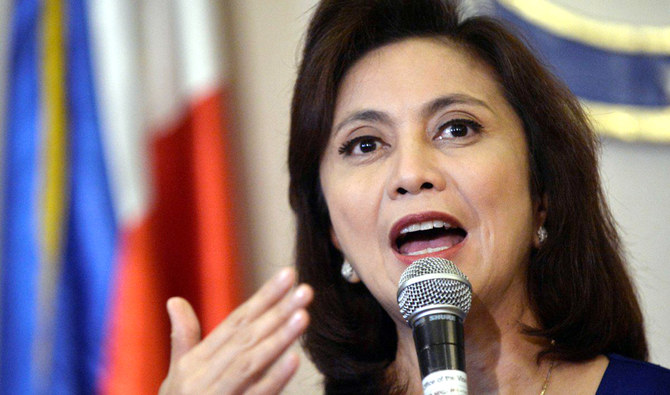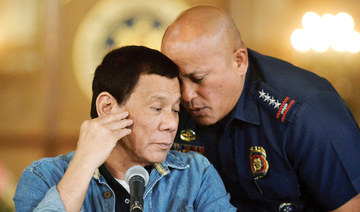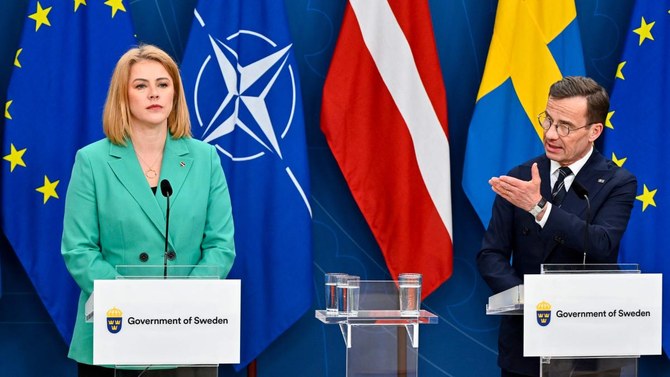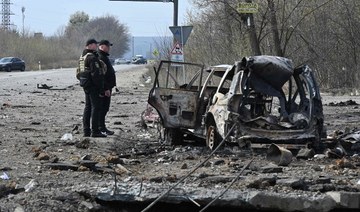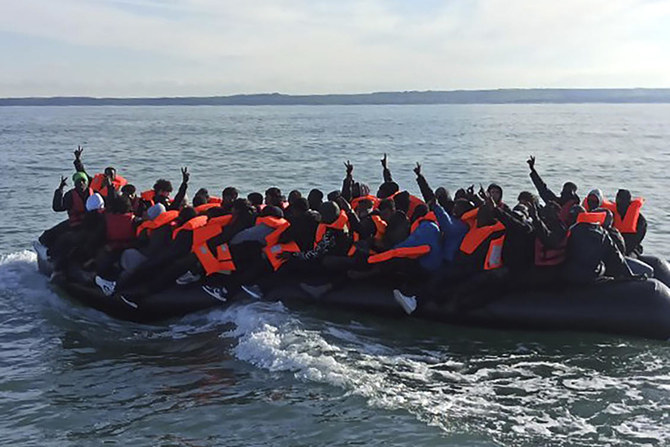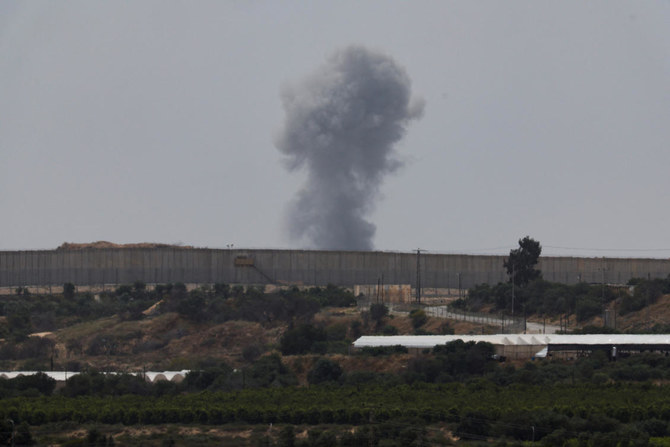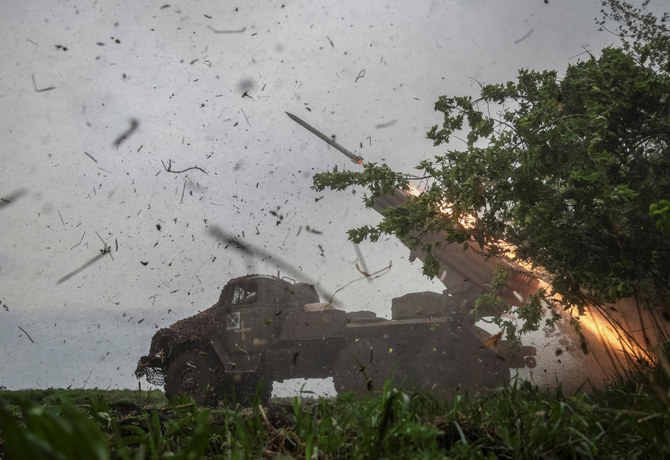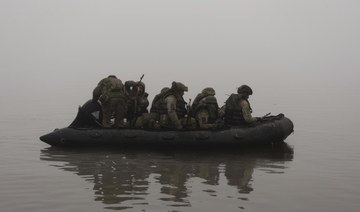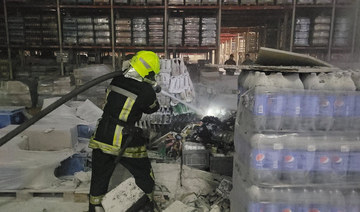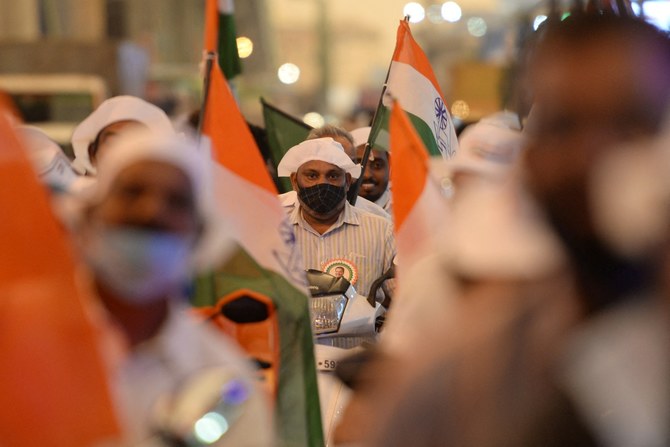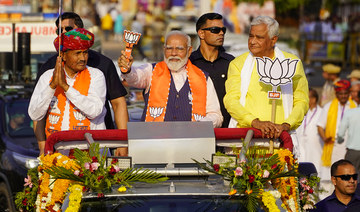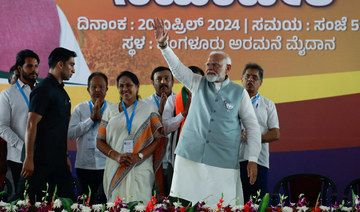MANILA: She is one of his most vocal critics, while he never misses an opportunity to mock her in public speeches across the Philippines.
But when it comes to upholding the sanctity of their office, both President Rodrigo Duterte and Vice President Leni Robredo ensure they bring a finely scripted civility to the table.
“I do not meet him often. I do not get invited to functions in the presidential palace, but I get invited to military events. I try as much as I can to attend ... and I see the president there. Our meetings have always been cordial. The president has been very civil when we see each other,” Robredo said in an exclusive interview with Arab News in Manila.
Robredo was elected separately to Duterte and was not his running mate. Amid rumors that she is the obvious choice to take on the mantle once Duterte finishes his term, Robredo says that she is not ready to rule out the idea just yet.
“I do not rule it out completely only because of what happened during the last two elections where I ruled out running for Congress and I ruled out running for the vice-presidency, and I had to eat my words after that,” she said, adding that as far as the Philippines is concerned, it’s all about “destiny.”
“Our history has shown that a lot of people have aspired for the presidency, but have not been successful. And we have had a lot of presidents who won the elections where they had not prepared as much as the other candidates. It is something that will be given to you if it is really meant for you. So there is no point in preparing for it at this point,” she said.
In recent years, Robredo and Duterte have had a frosty relationship over issues ranging from the government’s controversial war on drugs to the Philippines ties with China.
Recently, Robredo called out Duterte for his “shoot, but don’t kill” orders.
The president made his comments on Thursday during the inauguration of the Bataan government center and business hub dubbed “The Bunker,” urging Filipinos to “shoot but not kill” public officials who were demanding money in exchange for their services and vowing to defend any person who attacked a corrupt official.
The statement drew flak from several rights organizations and, most significantly, from the vice president herself.
“I do not agree with killings per se, whether they are against drug addicts or corrupt officials. We have laws; we have the judicial system, and we should make sure that we have a strong judicial system, safe from political intrusion and corruption,” she said.
Robredo also explained why she has been at loggerheads with Duterte over his stance on the South China Sea.
Last week, she described as “reckless” his suggestion that he would consider bypassing an arbitration ruling — in favor of the Philippines — over a territorial dispute with China in order to finalize an energy pact with Beijing.
“I have always been vocal about statements by the president, which may be interpreted in a manner that would be against the constitution. It has been the reason of some friction between us. There has been a lot of confusion as far as the seriousness of the president’s remarks is concerned. Whenever he makes controversial statements, some officials around him try to correct those statements,” she said, adding that her retorts have “been a source of criticism from many of the president’s supporters.”
Adding to their constant tug-of-war is the issue of Overseas Filipino Workers (OFWs) and sending manpower to countries in the Middle East.
The issue intensified with the murder of 29-year-old Joanna Demafelis, whose body was found stuffed in a freezer in Kuwait last year. A Syrian woman, one of Demafelis’ employers, was found guilty of her murder this month.
Following the incident, the Philippines placed a ban on sending workers to Kuwait.
Duterte lifted the ban after Demafelis’ killer was tried, and there have been efforts to negotiate the terms and conditions of labor contracts by both the countries.
“The issues in Kuwait became a little too unbearable and we entered into a memorandum of agreement last year ... it was a reaction to many of the complaints that overseas Filipinos in Kuwait have. Some say that their passports are being confiscated by employers as soon as they reach Kuwait, and there are complaints about the working conditions, hours, etc,” Robredo said.
However, the agreement was a “short-term” initiative and a more formal bilateral agreement would have been “better in the sense that both countries will be made accountable,” she said.
“This is our desire not just in Kuwait, but also in many other parts of the Middle East, and in Saudi Arabia for example, where most of our Filipino workers are. There has been a UN convention on the protection of the rights of overseas workers — migrant workers — but, unfortunately, most of the countries hosting our migrant workers are not signatories to that convention yet,” she said.
Robredo described the agreement a “work in progress,” saying “it is something that we have been working on for several years.”
The Philippines signed two agreements with Saudi Arabia — the first in 2015, and another two years later — on labor contracts and recruitment.
According to the Philippines Statistics Authority, the Kingdom continued to be the top destination for OFWs until May this year, with an estimated 2.3 million Filipinos working there.
Remittances from the period totalled P235.9 billion ($4.5 billion), up from P205.2 billion a year earlier.
“It is our desire that the countries hosting our migrant workers will be signatories to the UN convention because at the very least, the basic rights of our workers will be protected. It is something that not just our Foreign Affairs Department is working on, but our Labor Department as well,” she said, adding that this and a few other issues are subjects on which she and the president agree.
In June this year, when both Robredo and Duterte entered the final stretch of their six-year terms, the vice president said that she wanted a “better working relationship” with the president.
It is a sentiment that she voiced strongly while talking to Arab News as well.
“I think if our meetings are to be the gauge of our relationship, we are OK. It is just that there have been a lot of side remarks, issues and criticisms outside of our meetings that I think complicates the relationship,” she said.



